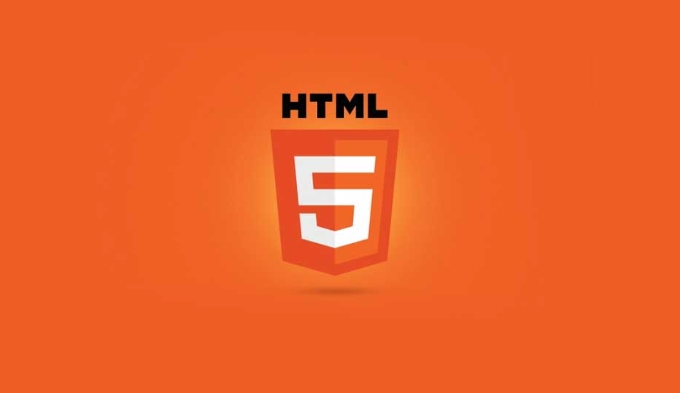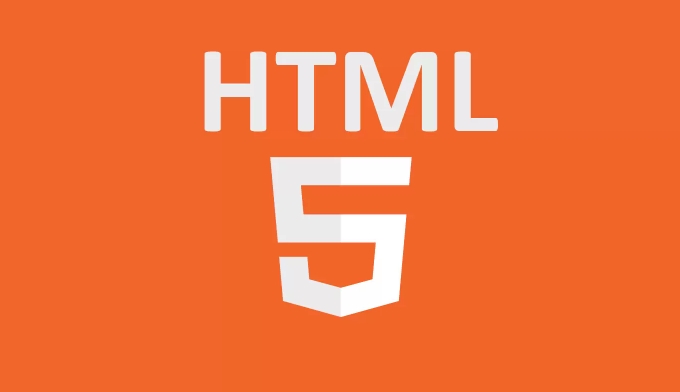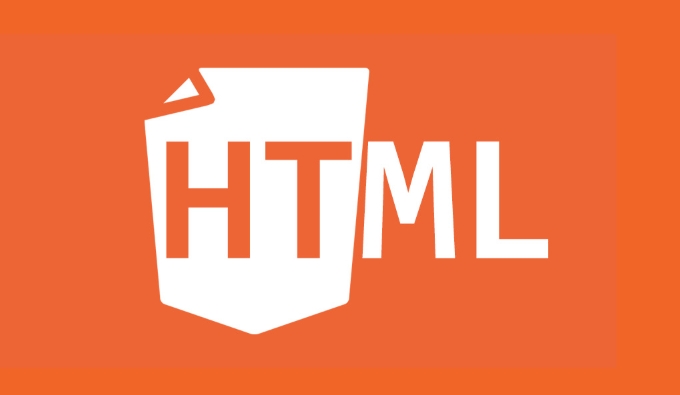The use of H5's WebGL to achieve high-performance 2D graphics rendering is because WebGL is based on GPU and has hardware acceleration capabilities. It is more suitable for handling large amounts of graphics drawing and complex animation than Canvas 2D. 1. WebGL is a browser interface based on OpenGL ES, which runs on the GPU to improve graphics processing efficiency; 2. HTML5 provides the canvas container to carry WebGL content, achieving high-performance rendering without plug-ins; 3. Compared with Canvas 2D, WebGL supports hardware acceleration and has stronger performance, especially suitable for frequent repainting or graphics-intensive scenarios; 4. Developers can realize 2D graphics drawing by obtaining WebGL context, writing shader code, creating buffers, setting projection matrix, etc.; 5. The development process can be simplified by using PixiJS, Three.js (2D mode), Babylon.js 2D and ZCanvas libraries; 6. Optimization suggestions include avoiding frequent resource operations, using texture drawings, and controlling draw calls Quantity, adaptive resolution and enable anti-aliasing. After mastering the basic structure, the performance advantages of WebGL in 2D graphics rendering will be significantly reflected.

H5 (HTML5) combined with WebGL to achieve high-performance 2D graphics rendering is actually a very practical but easily underestimated combination. Many people think of 3D when they mention WebGL, but in fact it also has huge advantages in 2D, especially in scenarios where a large number of graphics drawings, animation effects or interactive operations are required, such as games, data visualization, image editors, etc.

WebGL itself is a browser interface based on OpenGL ES. It runs on the GPU and can efficiently process graphical data. HTML5 provides containers like canvas to host these graphic content. Combining the two allows high-performance 2D rendering without relying on additional plugins.
Why choose WebGL instead of Canvas 2D?
Canvas 2D is HTML5 native 2D rendering context, simple to use and API friendly. But its limitations are also obvious: all drawing operations are completed on the CPU and then passed to the GPU, which is less efficient, especially in the case of frequent redrawing and large number of graphics elements, performance will be significantly reduced.

WebGL runs directly on the GPU, supports hardware acceleration, and has much higher drawing efficiency. Although the learning curve is steeper, once you master the basic routines, you can achieve smoother animations and more complex visual effects, especially on the mobile terminal, which can maintain good performance.
How to start making 2D graphics with WebGL?
If you are already familiar with the use of HTML5 Canvas, it will be a natural process to go to WebGL, but you need to understand more about the underlying concepts.

Here are some basic steps:
- Get WebGL context : Create a
<canvas></canvas>element in HTML and then get the WebGL context throughgetContext('webgl'). - Write shader code : WebGL uses GLSL (OpenGL Shading Language) to define vertex and fragment shaders. 2D scenes usually require only simple vertex position and color processing.
- Create a buffer and pass in data : such as vertex coordinates, texture coordinates, etc., all need to be passed into the GPU through the buffer object (
gl.createBuffer()). - Setting up viewport and projection matrix : Although 2D does not require complex perspective projections, orthogonal projection matrix is usually used to adapt to different resolutions and coordinate systems.
- Draw a graph : Call
gl.drawArrays()orgl.drawElements()to draw the graph.
For 2D graphics, there is no need for too complex matrix operations, and some lightweight libraries (such as gl-matrix) can be used to simplify mathematical operations.
What are some WebGL frameworks or libraries suitable for 2D?
If you don't want to write WebGL from scratch, there are some libraries that are specifically optimized for 2D to use, which makes a good balance between performance and ease of use:
- PixiJS : A very popular 2D WebGL rendering engine designed for high-performance graphics, supports sprites, textures, animations, etc., suitable for games and animations.
- Three.js (2D mode) : Although Three.js focuses on 3D, 2D content can be rendered efficiently through orthogonal cameras and 2D planes.
- Babylon.js 2D : Babylon.js provides the BabylonJS 2D module, which can use the high-performance features of WebGL in 2D scenarios.
- ZCanvas : A lightweight WebGL 2D renderer suitable for chart and data visualization scenarios.
Most of these libraries encapsulate the complexity of WebGL, provide an API similar to Canvas 2D, while retaining the performance advantages of WebGL.
Some FAQs and optimization suggestions
In actual development, you may encounter some common performance bottlenecks or display problems:
- Avoid frequent creation and destruction of buffers : WebGL has high resource management costs, try to reuse buffers and textures.
- Use Texture Atlas reasonably : Combining multiple small images into one large image can reduce draw calls and improve performance.
- Control the number of draw calls : Each call to
drawArrayshas a certain overhead, and the drawing content can be merged and drawn as much as possible. - Pay attention to resolution adaptation issues : In high-resolution devices, the pixel ratio of canvas (devicePixelRatio) may not be equal to 1, and the viewport size needs to be adjusted appropriately.
- Enable WebGL's antialias feature (if supported) : When initializing the context, you can enable
antialias: trueto improve graphics quality.
Basically that's it. Although using H5's WebGL to make 2D graphics is a little more complicated than Canvas 2D, as long as you master the basic structure, you can achieve stronger performance potential. Especially when you need to deal with a lot of graphics or complex animations, the advantages of WebGL are very obvious.
The above is the detailed content of H5 WebGL for High-Performance 2D Graphics. For more information, please follow other related articles on the PHP Chinese website!

Hot AI Tools

Undress AI Tool
Undress images for free

Undresser.AI Undress
AI-powered app for creating realistic nude photos

AI Clothes Remover
Online AI tool for removing clothes from photos.

Clothoff.io
AI clothes remover

Video Face Swap
Swap faces in any video effortlessly with our completely free AI face swap tool!

Hot Article

Hot Tools

Notepad++7.3.1
Easy-to-use and free code editor

SublimeText3 Chinese version
Chinese version, very easy to use

Zend Studio 13.0.1
Powerful PHP integrated development environment

Dreamweaver CS6
Visual web development tools

SublimeText3 Mac version
God-level code editing software (SublimeText3)
 What does h5 mean?
Aug 02, 2023 pm 01:52 PM
What does h5 mean?
Aug 02, 2023 pm 01:52 PM
H5 refers to HTML5, the latest version of HTML. H5 is a powerful markup language that provides developers with more choices and creative space. Its emergence promotes the development of Web technology, making the interaction and effect of web pages more Excellent, as H5 technology gradually matures and becomes popular, I believe it will play an increasingly important role in the Internet world.
 How to distinguish between H5, WEB front-end, big front-end, and WEB full stack?
Aug 03, 2022 pm 04:00 PM
How to distinguish between H5, WEB front-end, big front-end, and WEB full stack?
Aug 03, 2022 pm 04:00 PM
This article will help you quickly distinguish between H5, WEB front-end, large front-end, and WEB full stack. I hope it will be helpful to friends in need!
 What Does H5 Refer To? Exploring the Context
Apr 12, 2025 am 12:03 AM
What Does H5 Refer To? Exploring the Context
Apr 12, 2025 am 12:03 AM
H5referstoHTML5,apivotaltechnologyinwebdevelopment.1)HTML5introducesnewelementsandAPIsforrich,dynamicwebapplications.2)Itsupportsmultimediawithoutplugins,enhancinguserexperienceacrossdevices.3)SemanticelementsimprovecontentstructureandSEO.4)H5'srespo
 H5: The Evolution of Web Standards and Technologies
Apr 15, 2025 am 12:12 AM
H5: The Evolution of Web Standards and Technologies
Apr 15, 2025 am 12:12 AM
Web standards and technologies have evolved from HTML4, CSS2 and simple JavaScript to date and have undergone significant developments. 1) HTML5 introduces APIs such as Canvas and WebStorage, which enhances the complexity and interactivity of web applications. 2) CSS3 adds animation and transition functions to make the page more effective. 3) JavaScript improves development efficiency and code readability through modern syntax of Node.js and ES6, such as arrow functions and classes. These changes have promoted the development of performance optimization and best practices of web applications.
 How to implement h5 to slide up on the web side to load the next page
Mar 11, 2024 am 10:26 AM
How to implement h5 to slide up on the web side to load the next page
Mar 11, 2024 am 10:26 AM
Implementation steps: 1. Monitor the scroll event of the page; 2. Determine whether the page has scrolled to the bottom; 3. Load the next page of data; 4. Update the page scroll position.
 H5: How It Enhances User Experience on the Web
Apr 19, 2025 am 12:08 AM
H5: How It Enhances User Experience on the Web
Apr 19, 2025 am 12:08 AM
H5 improves web user experience with multimedia support, offline storage and performance optimization. 1) Multimedia support: H5 and elements simplify development and improve user experience. 2) Offline storage: WebStorage and IndexedDB allow offline use to improve the experience. 3) Performance optimization: WebWorkers and elements optimize performance to reduce bandwidth consumption.
 H5 Code: Accessibility and Semantic HTML
Apr 09, 2025 am 12:05 AM
H5 Code: Accessibility and Semantic HTML
Apr 09, 2025 am 12:05 AM
H5 improves web page accessibility and SEO effects through semantic elements and ARIA attributes. 1. Use, etc. to organize the content structure and improve SEO. 2. ARIA attributes such as aria-label enhance accessibility, and assistive technology users can use web pages smoothly.
 How to use position in h5
Dec 26, 2023 pm 01:39 PM
How to use position in h5
Dec 26, 2023 pm 01:39 PM
In H5, you can use the position attribute to control the positioning of elements through CSS: 1. Relative positioning, the syntax is "style="position: relative;"; 2. Absolute positioning, the syntax is "style="position: absolute;" "; 3. Fixed positioning, the syntax is "style="position: fixed;" and so on.






